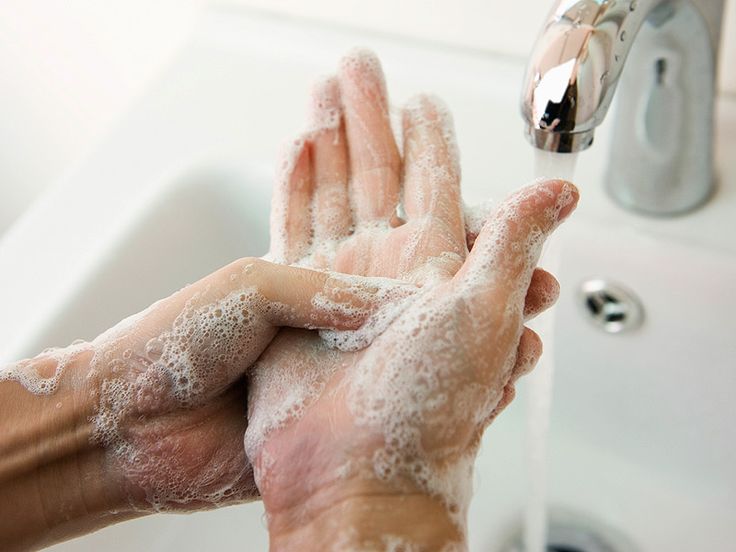Obsessive Compulsive Disorder
Do you often find yourself repeatedly checking to see if a door is locked or an iron turned off, or need to have things put back exactly where they were, or excessive washing of hands , you could be suffering from Obsessive Compulsive Disorder. Obsessive Compulsive Disorder is depicted in the movie, "As Good As It Gets ", with Jack Nicholson who portrays a middle aged man, Melvin Udall, with Obsessive Compulsive Disorder (OCD)who avoids stepping on cracks, flips light switch exactly five times and washes his hands repeatedly.

What is OCD
OCD is a chronic debilitating mental health condition characterized by distressing intrusive thoughts that produce anxiety and repetitive compulsive behaviors that one participates in to reduce anxiety. Individuals with OCD are unable to control their anxiety producing thoughts and their need to engage in repetitive behavior. OCD can have a tremendous negative impact on ones life. It can be devastating emotionally, socially, and vocationally. According to the National Institute of Mental Health, there are approximately 2.3% of the adult population between ages 18-54 suffer from OCD. In the United States there are approximately 3.3 million people who suffer from OCD.
What Are The Symptoms of OCD
OCD symptoms include obsessions. These are unwanted thoughts that are impulsive and repetitive. They can cause anxiety or fear. Examples include:
- Repeating things
- Fear of getting dirty or infected
- Fear of harming self or others
- Hyper focus on a thought repetitively
OCD symptoms also include Compulsions. These are behaviors that an individual repeats to try to control the obsessions. Some behaviors are structured/rigid and others are behaviors that change. Examples include:
- The need to do things perfectly
- Moving items to keep them in perfect order or
- Excessive hand washing
- Checking repetitively if things are done
- Counting often
The obsessions and/or compulsions take up a lot of time and interferes with ones daily life and can affect relationships and social life. Individuals with OCD know that thoughts and compulsions are not realistic but they can not stop the behavior. The repetitive thoughts and compulsions only temporarily relieve the anxiety which results in the need to repeat the behavior again and again.
What Is The Treatment for OCD
OCD can be treated. The most effective treatment for OCD is cognitive behavioral therapy which helps individuals identify unrealistic thoughts and then change how those thoughts are interpreted and redefine them. The therapy also includes the individual facing the anxiety that's provoking the behavior and learning strategies to move through it. There are certain individuals that may also need the assistance of medication along with cognitive behavioral therapy to treat their OCD.
If you feel that you or a loved one may be suffering from OCD, contact us today for a consultation.
how to make wigs spam followers instagram what are print concepts prada gift card chatgpt release chatgpt ai chat athenian academy charter school clearwater used prada boots prada sweatsuit mens prada jumpsuit mens fried chicken franchise instagram account followers prada hoodie women's roofing supply st louis mo colored bulletin boards prada pr18wv prada online stores captain's hat cardinal building group chatgpt plus price prada cleo white prada outlet prices prada bag 2022 20k followers instagram prada mens socks instagram usa followers prada loafers styled gucci shoes and bags birkenstock outlet stores prada mens boots cardinal building materials st louis chatgpt copyright aaa catalina island packages captain's hat prada store atlanta rihanna instagram followers prada broadway prada pr06ys instagram followers 200 snow patrol run lyrics meaning instagram 50k followers prada rectangular glasses gucci shoes outfit prada collaborations reflex blue cmyk prada racist instagram followers live fx makeup premier gymnastics lutz instagram followers statistics prada massage spa captain hat print concepts tamagotchi pet burgundy prada sneakers men's outlet clothing online prada gloves mens birkenstock outlet stores drake instagram followers instagram followers ads lee underwood lee underwood balenciaga official site instagram followers 1 prada factory outlet captain's epaulettes cork board roll aaa catalina yachting hat prada blackface followers like instagram prada buckle belt yokohoma prada prada ostrich bag prada sticker outlet department store fendi prada stack overflow chatgpt prada driving shoes prada promenade bag prada facemask awesome-chatgpt prada lotion doug dunham prada marfa poster reebok outlet online tamagachipatel high school jude & i construction instagram followers money slam entertainment chatgpt private dinner restaurant prada outlet prices at printing roofing material order form get chatgpt ai bot chatgpt manage followers instagram prada women glasses vitrual pet cardinal building materials prada dog bandana big cork boards ship captain uniform chatgpt apis zapier chatgpt instagram private followers make wig ugg outlet prices long goatees iko nordic colors electric mashman snowboard helmet prada clutch purse prada scottsdale prada ski pants instagram block followers prada key wallet 600 followers instagram cork board black prada singapore athleta factory outlet locations prada wikipédia franchise chicken gucci \ prada buckle bag
